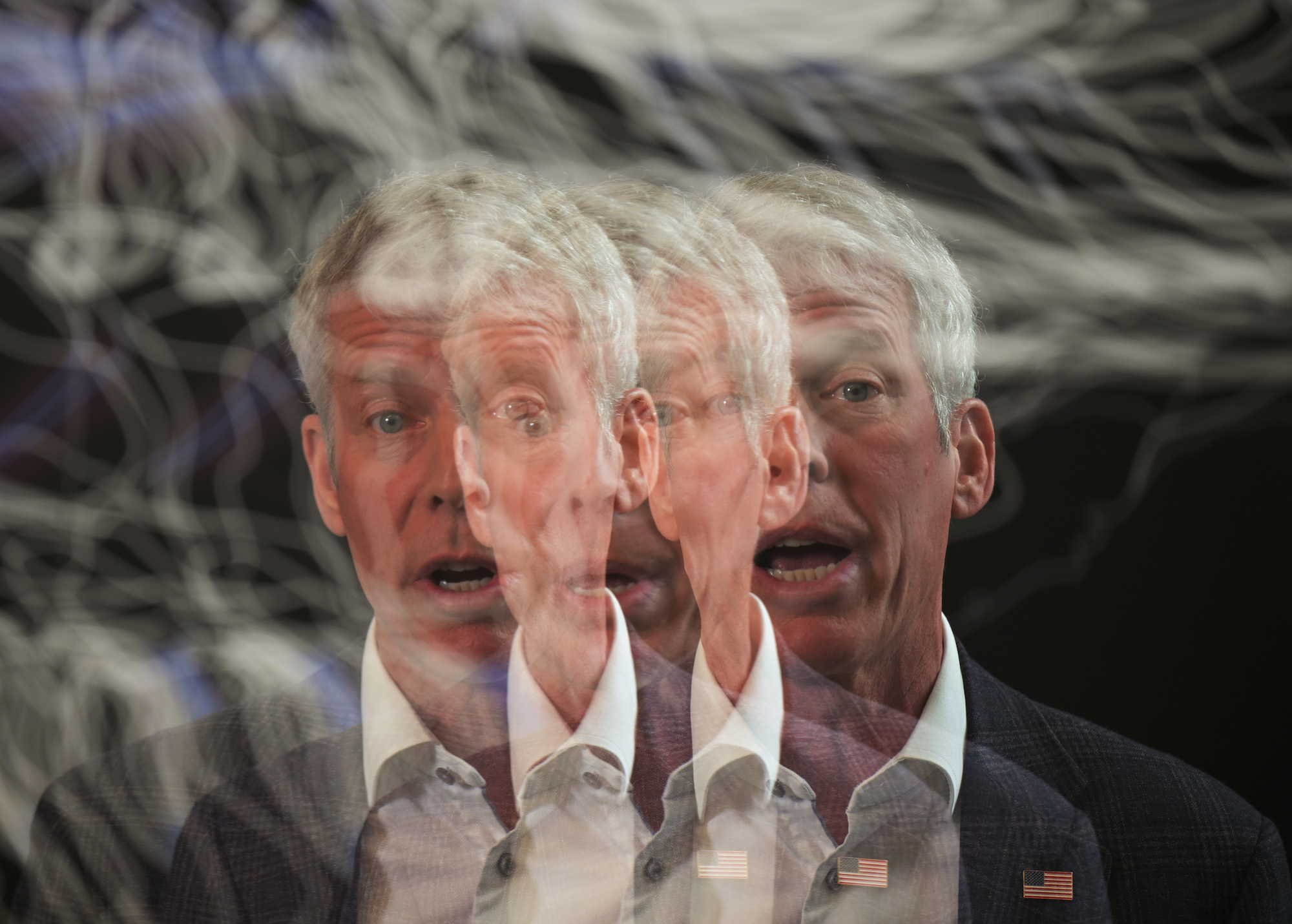Should you be worried about climate change? The answer used to be debatable — literally.
Way back in 2007, NPR aired a debate over the proposition that “Global Warming Is Not a Crisis.” The panel had six commentators, divided equally into two sides. Those on the “not a crisis” side (which included Jurassic Park author and nonscientist Michael Crichton) argued that much of the current alarm was based on “ignorance.” Sure, the climate was changing, but that wasn’t anything new, they said. They weren’t convinced carbon dioxide was driving it this time around, either.
Those stuck arguing that global warming was not not a crisis — an awkward double negative — countered that the scientific community was in near-universal agreement that CO2 and other greenhouse gas emissions were at fault. They laid out the dire consequences (rising seas, shrinking ice caps, warming oceans) and called on the audience to think of the planet their children and grandchildren would inherit.
Afterward, the conservative think tank The Heartland Institute declared that the climate “realists” had beaten the “alarmists.” Polling the audience, NPR found that 57 percent thought that global warming was a crisis before the debate, but only 42 percent did afterward. The results seemed to confirm the fears that participant Gavin Schmidt, a NASA climate scientist, had outlined on his blog ahead of the event. “Is this kind of rhetorical jousting useful for clarifying issues of science … ? Or does it just validate the least serious opposition?” he wrote.
In 2010, around the time when these kinds of debates were popular, almost half of Americans falsely believed there was a lot of disagreement among scientists that climate change was happening. Fast-forward to today, and the public’s understanding has evolved. More Americans acknowledge that scientists agree on climate change. People are also increasingly worried about the consequences: The intense floods, wildfires, and heat waves battering the country have sparked concern not only for the future, but for the present.
And yet the old way of discussing climate change — framing it as a debate — appears to be coming back into fashion, this time spurred by the federal government.
A new report from the Department of Energy, “A Critical Review of Impacts of Greenhouse Gas Emissions on the U.S. Climate,” arrived in late July. “Climate change is a challenge — not a catastrophe,” Chris Wright, the Trump-appointed energy secretary, declared in the foreword. He wrote that the public conversation on climate change had “drifted from the science” because of exaggerated media coverage, potentially leading to “misguided policies based on fear.”
While the report acknowledged that yes, the planet is getting warmer, and yes, it’s caused by humans, it argued that these changes aren’t as bad as you think. It contended that carbon dioxide is good for plant growth, that computer models are overstating predictions of future warming, and that sea level rise isn’t accelerating. These conclusions were no surprise considering that the report’s five authors — John Christy, Judith Curry, Steve Koonin, Ross McKitrick, and Roy Spencer — have a long track record of pushing back against mainstream narratives about climate change.
Among those who care deeply about climate change, the report sounded alarm bells. Critics pointed to its use of selectively chosen data. A fact-check from the data journalism nonprofit Carbon Brief identified more than 100 cases of false or misleading claims in the 140-page document, with some researchers saying their cited work had been mischaracterized. Some scientists, led by Andrew Dessler at Texas A&M University, have begun organizing an academic response to the report.
“It is a shock to see the U.S. government, in an official document, deny scientific realities and spew so much disinformation,” said Rachel Cleetus, a senior policy director for climate and energy at the Union of Concerned Scientists.
But getting scientists riled up might have been intentional. One of the report’s authors, Koonin, recently told E&E News that the expected pushback to the DOE report is part of a long-standing effort to create a “red team, blue team” exercise that could revive the “debate” over climate change.
“Red team, blue team” is a reference to an adversarial military exercise used to expose weaknesses. The idea, with roots in 19th-century Prussian war games, took off in the U.S. during the Cold War in the 1960s and has since become popular in cybersecurity. Companies will hire a “red” team to try to poke holes in their “blue” team’s digital defenses. These provocations help companies bolster their defenses against actual hackers.
The red team, blue team idea was floated by an EPA official during President Donald Trump’s first term as a way to challenge mainstream climate science. Before that, it had been raised by Spencer, another author on the 2025 report, as early as 2009. For a matter like climate change, however, a loud red-team attack has the effect of making the whole field look wobbly, split into two equally divided sides.
“It can really create perceptions of false equivalence in the public sphere,” said Max Boykoff, an environmental studies professor at the University of Colorado Boulder.

RJ Sangosti/ MediaNews Group / The Denver Post via Getty Images
Matt Burgess, an environmental economist at the University of Wyoming, said that the context of the DOE report — the Trump administration’s broader assault on climate information — makes it hard to take it seriously. While the DOE report was underway, officials removed congressionally mandated climate reports on how climate change affects life in the United States from the federal website they lived on. The administration has also cut billions in funding for climate programs and research, and has proposed halting projects that monitor climate change.
On the same day the DOE report was released in July, the Environmental Protection Agency fired another shot at climate science, saying it would roll back the Obama-era finding that greenhouse gas emissions endanger public health — the scientific foundation that allows the agency to address climate change. In its proposal to repeal this so-called “endangerment” finding, the EPA cited the new DOE report, and many have interpreted it as a pretext for the EPA’s announcement.
So the “blue team” pushed back. Two environmental groups, the Environmental Defense Fund and the Union of Concerned Scientists, filed a lawsuit against both agencies earlier this month, arguing that Wright had secretly arranged for five “hand-picked skeptics” to write a report challenging the scientific consensus on climate change. The lawsuit alleges that involving a “secret, unaccountable” group in policymaking concerns violated federal law. (The DOE did not respond to a request for comment for this story.)
But scientists may want to be careful in how they push back at the report, since arguing over fringe viewpoints may have the effect of amplifying them, falling into the same trap created by the climate debates of 20 years ago. One study from 2023 found that disinformation about climate change was more emotionally compelling and persuasive to people than scientific facts. To Cleetus, the government’s revival of the climate “debate” is a distraction from the task at hand. “We’re losing precious, precious time to help stave off these terrible impacts of climate change,” Cleetus said. “And I don’t know what we will say to our children and grandchildren, that this is what we wasted our time on.”
Much of the polarization around climate change appears to stem from disagreements over what to do about it. In recent years, many advocates have justified faster action — more regulations, fewer fossil fuels, and more green technology — by appealing to “science.” The Biden administration even enshrined “listen to science” as its official policy. But while science can inform policy decisions, it doesn’t answer the question of how to navigate the complex moral and cultural issues that come with reimagining life after fossil fuels.
The political left has used the science-has-all-the-answers framing to shut down important conversations about real trade-offs, said Travis Fisher, who helped organize the DOE report. He is also the director of energy and environmental policy at the Cato Institute, a libertarian think tank. He says that by using “the science” as justification to push through controversial policies, it invites skepticism in science as an objective force.
“There’s only so many times you can get hit with that, like, trademark ‘science’ club before you start saying, ‘Hey, what’s actually in that club that you have?’” Fisher said. “‘Is it as solid as you say it is?’”
It bears repeating that upward of 97 percent of climate experts agree that human-caused climate change is happening, but there are many areas of climate science that merit further study. For example, the question of whether climate change affects tornadoes (not yet clear) or just how quickly and strongly CO2 emissions will drive global warming in the future. (The DOE report argues that the planet is less sensitive to CO2 than commonly believed, while scientist James Hansen argues that it’s actually more sensitive.) Science is always evolving as new evidence comes in, and it takes many studies to create a sufficient body of evidence before a causal argument can be accepted.
Take that famous 97 percent stat from the American Association for the Advancement of Science, for example. According to the organization, it came from “not just … a single study, but by a converging stream of evidence over the past two decades from surveys of scientists, content analyses of peer-reviewed studies, and public statements issued by virtually every membership organization of experts in this field.”
To Burgess, the environmental economist, the messy context around the DOE report represents a missed opportunity — particularly because he thinks the critics make some good points. There are certain narratives, especially around the severity of climate impacts, he said, “that are underappreciated in the mainstream discourse.”
But the solution, Burgess said, isn’t war-room style debates — it’s open, transparent collaboration between what might be described as the “blue team” and “red team.” As an example of a way to encourage thoughtful engagement, he pointed to the University of Pennsylvania’s Adversarial Collaboration Project, which encourages scholars who disagree to work together to resolve polarizing scientific disputes.
“We do ourselves and the community a favor when we dispassionately try to, through things like adversarial collaboration, get to the bottom of genuine scholarly debates about how to interpret facts,” Burgess said. “Even if we don’t like the people who interpret the facts differently than we do.”
Wright has hinted that the DOE’s report, which is open to the public to comment, may just be the start of the administration’s move to stir up debate over climate change. “We’ll probably have public events here in D.C. this fall,” he said in an interview with CNN earlier this month. “We want to have an honest dialogue with the American people about climate change.”
Burgess interprets the whole episode around report differently. “I think it’s just basically another opportunity for people to yell at each other online and go back to their silos,” he said.
Source link
Kate Yoder grist.org



